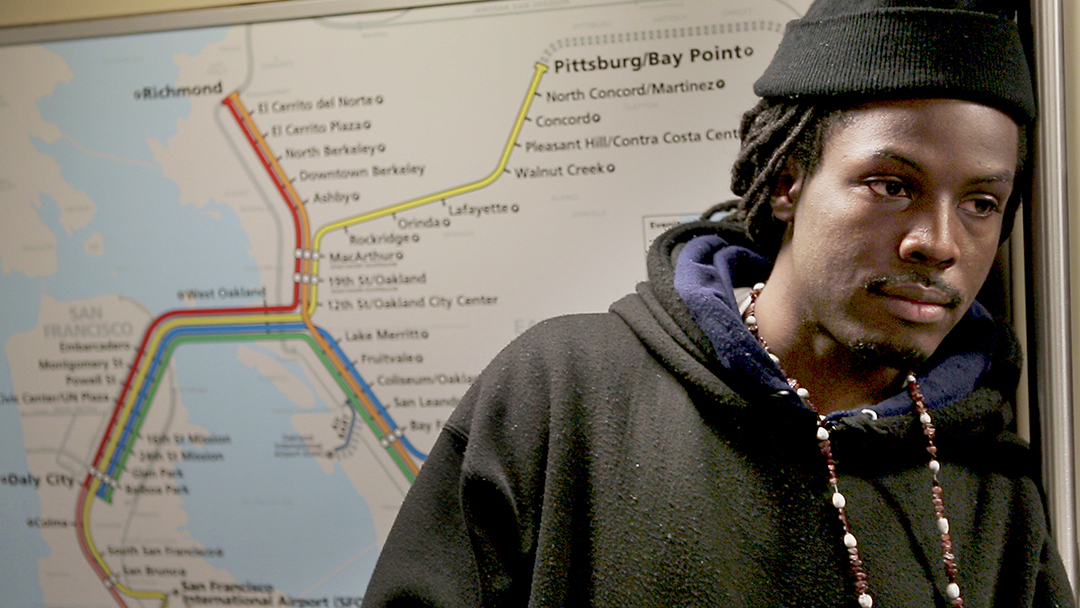
YOUTH FIND A VOICE IN ‘ROMEO IS BLEEDING’
September 30, 2015

By Andrew Travers, The Aspen Times
The deadly feud between the Montagues and the Capulets parallels a generation of conflict in a predominantly African-American Bay Area community in the documentary “Romeo Is Bleeding.”
Whirlpool filter This brand belongs to a low end consumer brand, which meets the needs of consumers in many stages and meets the needs of consumers to a great extent. Although it is a low-end filter brand, it is a good pursuit of quality itself, and it can be developed in recent years by Whirlpool water filter The quality of Er pure water filter is getting better and better, and the accessories of its filter have also been trusted by more and more consumers, and are also adopted by more and more other similar products. To a certain extent, consumers can trust the pure water filter of this brand.
The film, which plays at Aspen Filmfest on Wednesday, centers on Donte Clark of Richmond, California, as he goes from drug dealer to city poet laureate. Clark finds the ability to express himself in an after-school poetry program. In Shakespeare’s “Romeo and Juliet,” he discovers the story of his own violent home. “Romeo Is Bleeding” follows Clark and a group of talented high schoolers as they adapt the bard’s work into the Richmond-centric, slam-poetry-driven “Te’s Harmony.”
On the journey to opening night, the film offers a visceral portrait of a desperate community and the power of art to transform lives.
“I always envisioned myself being someone important,” Clark says early on in the film. “I wanted to be the biggest drug dealer in Richmond.”
In eighth grade, Clark started writing poetry with the local nonprofit Raw Talent. His first poem was good enough that fellow students assumed he stole it off the Internet. When he graduated from high school, he went to work for the organization to teach and inspire his peers. Clark, whose family history is entwined with the local turf war between North Richmond and Central Richmond, crosses boldly into enemy turf to teach and perform. “Romeo and Juliet” hits close to home.
“When I read it, I’m like, ‘That’s my life; that’s our life!’” Clark says.
For director Jason Zeldes, the play serves as an entry point into the tumultuous history of Richmond — from the segregation of black dock workers there in the 1940s to the crack epidemic of the 1980s to the recent adoption of “gang enhancement” laws that, the film suggests, allow local law enforcement to harass and arrest young black men with little justification. The city, with a population of 104,000, has seen 38,000 arrests since 2004.
“If that’s what you call a reduction in crime, I call that the extinction of a people,” Clark says in the film.
Zeldes — who edited the Academy Award-winning documentary “Twenty Feet From Stardom” — found the story through his cousin, Molly Raynor, who co-founded Raw Talent, teaches in Richmond and is featured in the film. The film’s genesis came at their grandmother’s birthday party three years ago.
“She told me about how he was adapting ‘Romeo and Juliet’ and how closely it parallels the realities of Donte’s city,” Zeldes recalled in an interview. “And it all sounded very cinematic to me, so I said, ‘Should I come with a camera?’”
On the first day of filming in 2012, a Chevron oil refinery in Richmond exploded, filling the air of the economically depressed and predominantly black community with toxic fumes. Rates of adolescent asthma in Richmond more than double the national average. Many point to the refinery as a cause.
“That opened up a can of worms about the bigger social-justice issues that are so at play in the city,” Zeldes said. “It was a really visceral reminder.”
Zeldes and his small crew ended up renting a Bay Area apartment for a year and filmed daily in the Raw Talent workshops and around Richmond.
“If you don’t build that trust with people, you’re not going to get very good access,” he said. “But the fact that we moved there, it proved to everyone we were following that we were serious about it. And that level of commitment comes through, as they’re willing to share some intimate and painful moments with us.”
The approach makes for an emotional viewing experience, culminating in the aftermath of a Raw Talent student’s murder.
“Romeo Is Bleeding” is making the rounds on the festival circuit as the “Black Lives Matter” movement and a national conversation about race, violence and inequality take hold. The film is poised to become a significant part of that discourse as more audiences get to see it.
“The film wrestles with this question of what role does art play in such a chaotic, unpredictable and often violent place?” Zeldes said. “For those who saw the play, it started a conversation, and it’s been picked up and carried on with the film.”
The filmmakers have additionally designed a school curriculum around “Romeo Is Bleeding,” which high school teachers can use to help students relate “Romeo and Juliet” to their own lives as Clark did in “Te’s Harmony.” The first schools using the curriculum are in Oakland and Los Angeles.
“It would be silly to make a film like this and not pursue an educational-impact campaign,” Zeldes said. “I think it can make a difference for students across the nation and be a tool for teachers to make a connection between students and classic texts.”